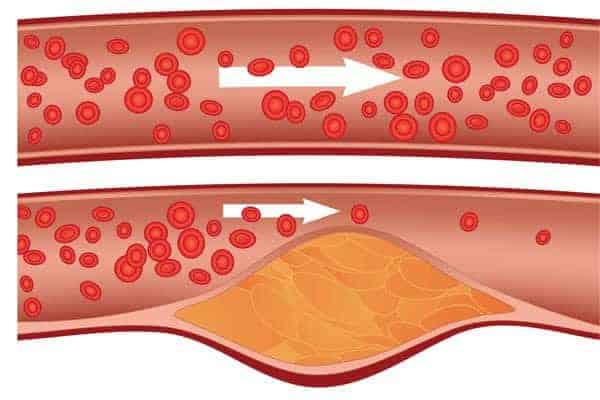Eat Your Way to All-Day Energy: Foods That Keep Fatigue Away
Daily fatigue often stems more from our dietary choices than we realize. While the midday slump is common, it’s possible to maintain natural energy levels throughout the day by focusing on smart nutrition. Opting for nutrient-rich foods over quick fixes like caffeine can provide sustained vitality. In this article, we’ll explore specific foods that support enduring energy and discuss healthier alternatives to caffeine.
1. Oatmeal

Oatmeal is a whole grain rich in complex carbohydrates and dietary fiber, providing steady, long-lasting energy without the spikes and crashes associated with sugary cereals. Its high fiber content slows digestion, promoting satiety and stable blood sugar levels. In contrast, granola bars and refined white bread often contain added sugars and refined grains, leading to rapid energy fluctuations. Enhancing your oatmeal with nuts, seeds, or fruit not only boosts its nutritional profile but also adds healthy fats, protein, and essential vitamins, further supporting sustained energy throughout the day. (virginbeautymagazine.com)
2. Bananas

Bananas offer a balanced blend of natural sugars, fiber, and potassium, making them an ideal snack to sustain energy between meals. Unlike the quick energy spike from candy, bananas provide a more enduring lift due to their complex carbohydrate content. Their convenience makes them perfect for busy mornings or as pre-workout fuel. Additionally, bananas are rich in potassium, which supports heart health and muscle function. Incorporating them into your diet can help maintain steady energy levels throughout the day. (healthline.com)
3. Greek Yogurt

Greek yogurt is a protein-rich food that can help stabilize blood sugar levels and reduce fatigue. Compared to regular yogurt, it contains more protein and less sugar, making it a better option for maintaining energy levels. Additionally, Greek yogurt contains probiotics, which are beneficial bacteria that support gut health. A healthy gut can indirectly influence energy levels by improving nutrient absorption and reducing inflammation. Pairing Greek yogurt with berries or seeds can enhance its nutritional profile, providing a more complete meal or snack. (medicalnewstoday.com)
4. Eggs

Eggs are a nutritional powerhouse, offering a complete protein profile that includes all nine essential amino acids necessary for muscle repair and energy production. (healthline.com) They are rich in B vitamins, such as B12 and riboflavin, which play crucial roles in energy metabolism. (medicalnewstoday.com) Additionally, eggs provide healthy fats that support sustained mental energy and alertness. Unlike pastries or bagels, which can lead to energy slumps due to high sugar content, eggs offer a more balanced and enduring energy source. Their versatility allows for incorporation into various meals, from breakfast to lunch, making them a convenient option for maintaining energy levels throughout the day. (medicalnewstoday.com)
5. Quinoa

Quinoa is a complete protein and complex carbohydrate that fuels muscles and brains for hours. Its iron and magnesium content combats fatigue, making it a superior choice over rice or pasta. Incorporate quinoa into salads or bowls for a nutritious meal. For example, a quinoa salad with roasted pumpkin, zucchini, and basil pesto offers a versatile and healthy option. (time.com)
6. Almonds

Almonds are a nutrient-dense snack, rich in vitamin E, magnesium, and healthy fats, providing steady, slow-release energy. A one-ounce serving offers 7.3 mg of vitamin E, approximately 50% of the daily recommended intake, and 80 mg of magnesium, about 20% of the daily value. (almonds.com) These nutrients support energy metabolism and muscle function. Unlike energy bars that may contain hidden sugars, almonds offer a natural, portable option. Studies have linked nut consumption to increased alertness levels, highlighting their role in cognitive function. (healthline.com)
7. Spinach

Spinach is a powerhouse of iron and vitamin C, both essential for combating fatigue. Iron supports oxygen delivery to muscles and the brain, enhancing energy levels. (health.clevelandclinic.org) Unlike iceberg lettuce, spinach offers dense nutrition, providing more vitamins and minerals per serving. Incorporate spinach into your diet by adding it to smoothies or omelets, boosting both flavor and nutritional value. (share.upmc.com)
8. Salmon

Salmon is rich in omega-3 fatty acids, high-quality protein, and vitamin D, all essential for supporting brain function and maintaining smooth energy levels. Omega-3s, particularly EPA and DHA, are vital for normal brain function and development throughout all stages of life. (healthline.com) Research suggests that omega-3s may help combat mental fatigue by reducing inflammation and modulating neurochemical signaling. (pmc.ncbi.nlm.nih.gov) In contrast, processed deli meats and fried options often contain unhealthy fats and additives that can negatively impact health and energy levels. (time.com) Incorporating salmon into your diet can provide sustained energy and support cognitive function.
9. Sweet Potatoes

Sweet potatoes are rich in slow-digesting carbohydrates, fiber, vitamin A, and potassium, making them ideal for maintaining stable blood sugar levels. Their complex carbs provide sustained energy without rapid spikes. (healthline.com) Unlike regular potatoes or French fries, sweet potatoes have a lower glycemic index, leading to a more gradual increase in blood sugar. (livestrong.com) To incorporate them into your diet, consider baking, roasting, or mashing sweet potatoes as energizing side dishes. (time.com)
10. Dark Chocolate
Dark chocolate contains naturally occurring caffeine and theobromine, providing a gentle energy lift without the jitters associated with coffee. (en.wikipedia.org) These compounds stimulate the central nervous system, enhancing alertness and focus. Additionally, dark chocolate is rich in antioxidants, particularly flavonoids, which support brain health by improving blood flow and reducing inflammation. (wellandgood.com) Unlike milk chocolate, which has a lower cocoa content and higher sugar levels, dark chocolate offers these benefits with less added sugar, making it a healthier choice for sustained energy. (stmaryshealthcaresystem.org)
11. Lentils

Lentils are rich in dietary fiber, iron, and plant-based proteins, promoting gradual energy release and helping to prevent afternoon slumps. (webmd.com) The iron content in lentils supports the production of hemoglobin, which is essential for transporting oxygen to muscles and the brain, thereby combating fatigue. (medicalnewstoday.com) Compared to other legumes or animal proteins, lentils offer a low-fat, high-fiber alternative that aids in digestion and maintains steady energy levels. (healthline.com) Incorporating lentils into your diet through soups or salads can provide a nutritious and energizing lunch option. (webmd.com)
12. Blueberries

Blueberries are rich in polyphenols, particularly anthocyanins, which have been shown to improve brain function and alertness. (kcl.ac.uk) These antioxidants help protect brain cells from oxidative stress, supporting cognitive health. Compared to fruit juices or candies, blueberries are low in sugar and high in fiber, making them a healthier snack choice. (curejoy.com) Incorporate them into your diet by adding fresh or frozen blueberries to yogurt or blending them into smoothies for a nutritious boost. (blogbuletin.com)
13. Brown Rice

Brown rice is a whole grain rich in complex carbohydrates and B vitamins, providing sustained energy and supporting metabolism. (health.clevelandclinic.org) Its high fiber content aids digestion and helps maintain stable blood sugar levels, making it a superior choice over white rice or pasta, which can cause rapid energy fluctuations. (medicalnewstoday.com) Incorporate brown rice into your meals by adding it to stir-fries, grain bowls, or using it as a base for salads. (healthline.com) This makes it an excellent option for vegetarians seeking steady fuel throughout the day. (draxe.com)
14. Pumpkin Seeds

Pumpkin seeds are rich in magnesium, zinc, and iron—minerals essential for energy metabolism and combating sluggishness. (indianexpress.com) Magnesium aids in converting food into energy, zinc supports immune function, and iron is crucial for oxygen transport in the blood. (health.com) Unlike chips or energy bars, which often contain unhealthy fats and added sugars, pumpkin seeds offer a healthier snacking option. (foodstruct.com) Incorporate them into your diet by adding to salads, mixing into yogurt, or including in trail mixes for an extra nutritional boost. (ssjournals.net)
15. Water

Water is essential for maintaining energy levels; even mild dehydration can lead to fatigue and reduced mental clarity. (health.clevelandclinic.org) Unlike sugary sodas or sports drinks, water contains no added sugars or calories, making it a healthier choice for hydration. (health.ny.gov) To increase daily water intake, consider infusing it with fruits like lemon, lime, or berries for added flavor without extra calories. (onieproject.org)
Conclusion

Maintaining all-day energy is best achieved through a varied selection of nutrient-dense foods rather than quick fixes. By incorporating a mix of whole grains, lean proteins, healthy fats, and fresh fruits and vegetables, you can support sustained energy levels throughout the day. For example, a balanced meal might include quinoa, grilled chicken, and a side of steamed broccoli. Remember, lifestyle factors such as adequate sleep and stress management also play crucial roles in energy levels. Prioritizing these aspects can further enhance your vitality and overall well-being. (time.com)
Disclaimer

The information provided in this article is for informational purposes only and does not constitute medical advice. Always consult with a qualified healthcare professional before making significant dietary changes or addressing health concerns. For more information, please refer to Healthline’s disclaimer (healthline.com).
.article-content-img img { width: 100% }





